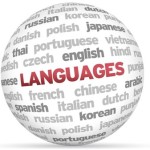My first encounter with bilingual secondary education (tweetalig onderwijs, or tto) was when I moved to the Netherlands in 2009, as a young and enthusiastic language teacher. Considering my already blossoming interest in Content & Language Integrated Learning (CLIL) at that time, I felt I had hit the linguistic jackpot. It seemed like pupils in Dutch bilingual schools were being offered the ultimate language-learning opportunity and I wholeheartedly embraced the opportunity to become part of the tto community.
Nine years on, Rick de Graaff and I had the honour of editing the Winter 2018 edition of the Dutch Journal of Applied Linguistics (DuJAL), which was dedicated to research in the field of CLIL and Bilingual Education in the Netherlands. Publication of this issue is timely considering that 2019 is the year that will not only see tto celebrate its 30th birthday, but also the year of the introduction of ‘tto 2.0’. Tto has a long-standing relationship with research which will hopefully continue into this new era. I agree, however, with Dominik Rumlich’s comment from his ‘outsider’ perspective on the special issue that there is still much ground that can be covered. He goes into depth on a number of excellent pathways for future research, but I believe that there are even more directions we could head in.
So where do we go from here?
A young participant in my own research commented recently that tto is about so much more than just learning school subjects in English. In the light of the upcoming changes to bilingual education, it may also be time for research to distinguish more clearly between CLIL and other aspects of tto, such as global citizenship and personal development. Furthermore, as schools investigate approaches to teaching and learning that reposition the roles of teachers and learners (e.g. personalized learning), it might be valuable to investigate the viability of ‘traditional’ understandings of CLIL methodologies in such contexts, or whether these too need rethinking. A first step in this direction might be the investigation of whether a pluriliteracies approach as advocated by the Graz Group might suit the Dutch context, or whether a new, context-specific definition of CLIL might be more appropriate.
New contexts, new opportunities
Alongside developments within tto itself, bilingual education continues to spread to other areas of education, with the first research projects into bilingual primary education currently underway, and an increasing number of colleges of further education adopting a new variant of the approach. This comes amidst a fierce debate regarding the Anglicisation of higher education and a recent call for universities to follow the pedagogical examples set by tto and CLIL. These developments into different areas of education may lead to new strands of research altogether, creating room for expansion of the Dutch CLIL research community. In a different area of higher education, the Netherlands is host to a number of specialized teacher education tracks at both higher vocational and university level (for example Leiden’s own World Teachers Programme), and it seems a missed opportunity not to investigate how we can most effectively prepare new teachers for the demands that await them.
Breaking the CLIL monopoly
The final area that stands out for me in terms of further avenues for CLIL research relates to my own baggage: that of the young, enthusiastic language teacher who could not (and still cannot) believe her luck at falling into the lap of tto. In Anglophone countries, CLIL is often the domain of the language teacher and not of the teacher of Chemistry, History or PE. This raises the question as to whether there might be room in Dutch CLIL research for approaches to integrating content into the broader language curriculum, in order to bring the benefits of this rich approach to language learning to a broader, more inclusive audience. Belgian CLIL could be a source of inspiration for this: as illustrated during the CLIL Connect Conference in Brussels this month, a key difference between our two contexts is that CLIL in the Belgian context is not restricted to English.
As I enter my tenth year in the Netherlands and of my relationship with her unique bilingual education paradigm, it strikes me that Dutch research in our field – while undoubtedly impressive – really is just getting started. I, for one, am excited to see where the next ten years will take us.
Access the DuJAL Special Issue on CLIL and Bilingual Education via https://benjamins.com/catalog/dujal.7.2.
For more thoughts on the potential for more content in the Modern Foreign Languages curriculum, see the website of the Meesterschapsteam mvt at https://modernevreemdetalen.vakdidactiekgw.nl/2018/03/30/visietekst-meesterschapsteam-voor-curriculum-nu/ (in Dutch).




Recent Comments